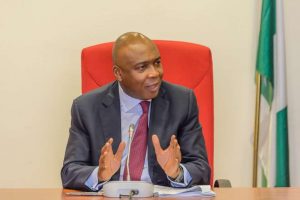‘He died in my arms.’ Twelve months on, a mother’s agonizing wait to find out why her son died at Lekki toll gate

In a blind panic, she called his phone, but there was no answer. She immediately hailed a passing motorcycle taxi, known locally as an Okada, and raced to the scene. But nothing could have prepared her for the harrowing scenes she witnessed when she got there, she said. “While I was looking for my son… I saw people running and someone was in the gutter and had an iron bar in his eye. The person was already dead,” she recalled.”Anything less will worsen distrust of the government and reinforce the perception that the lives of citizens do not matter.” Many Nigerians believe the issues that drew the protests 12 months ago still persist — and those who were there that fateful night are still seeking justice. DJ Switch, a local musician whose real name is Obianuju Catherine Udeh, was at the protest and live-streamed much of the evening on her Instagram page. A year later she recalls how she thought they were all going to die. “I thought it was the end for all of us there. You know, I mean when you sing the national anthem and wave your flag, your Nigerian flag, and the shooting doesn’t stop, you only have one thought left in your mind,” she said. Soon after the shootings, DJ Switch says she had to flee Nigeria, afraid for her safety, and she hasn’t been back since. “Justice is there waiting to be done, who’s going to do it? Young people are asking every day for accountability, who’s willing to be responsible — to take responsibility,” she said. Now Adesola is picking up the pieces after her eldest son’s death. Asked what she would say if she could talk directly to the Nigerian government, she said: “I will say to them the same thing I am saying to you. “I cannot be lying about my child’s death. I will show them his grave.”



